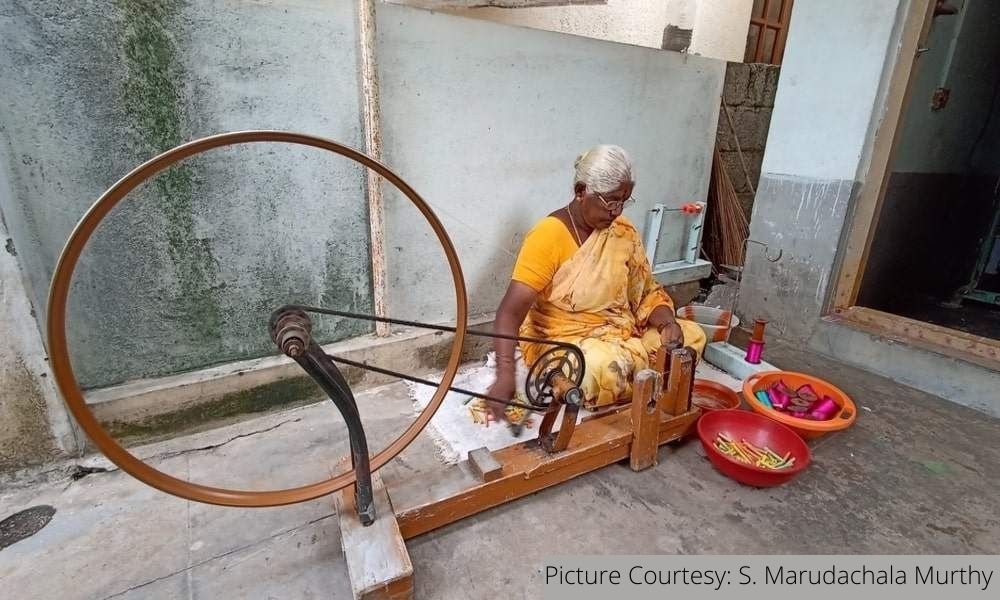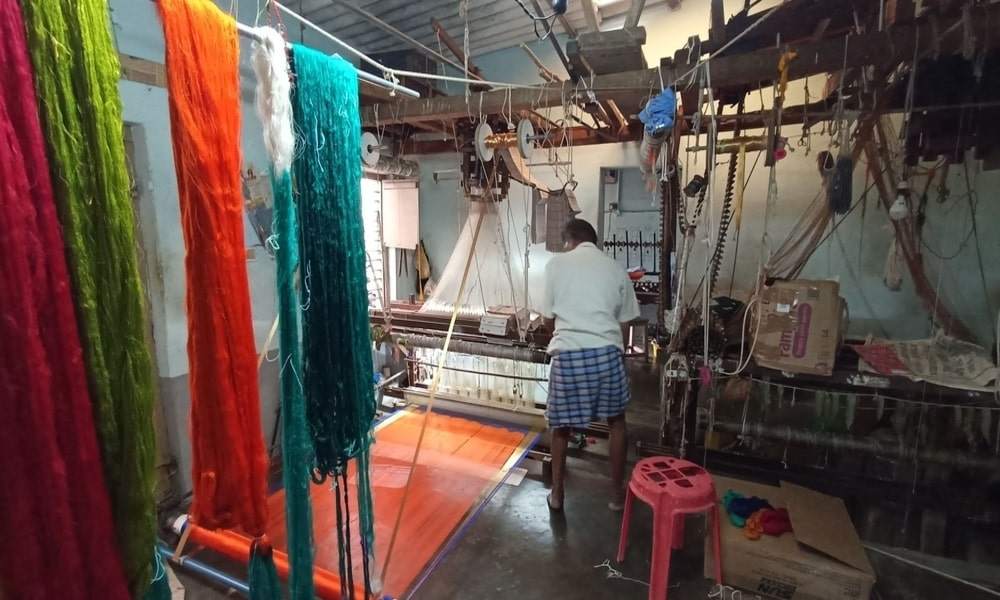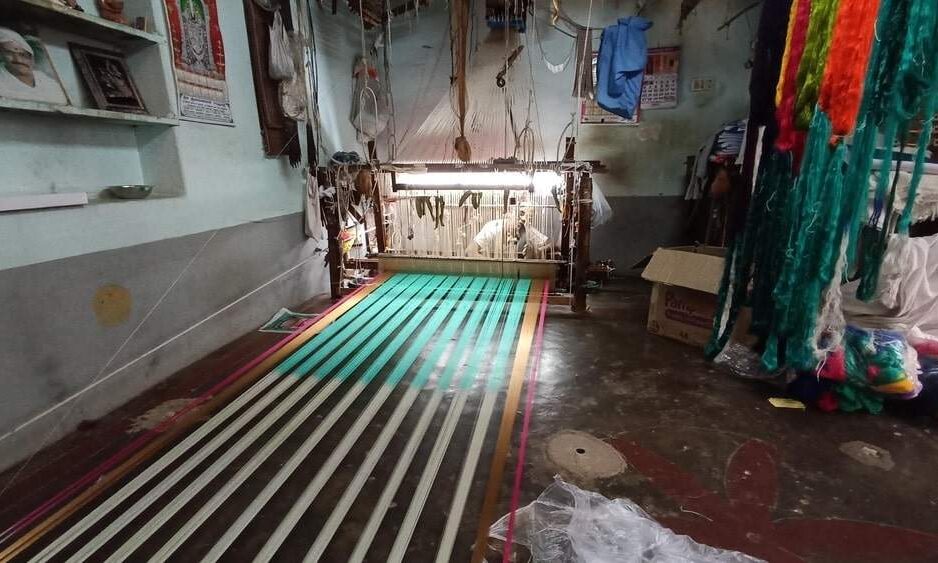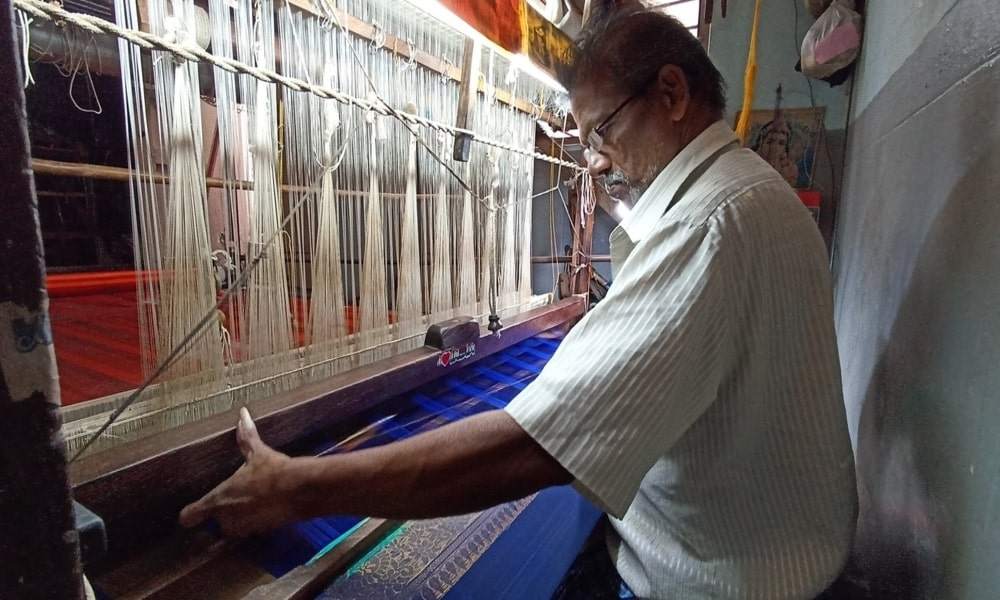With minimum consumer demand and government assistance, handloom weavers have shifted to other jobs during Covid-19.
During Covid, weavers in the city shifted to work as security guards or auto drivers due to financial distress.
“I started driving an auto-rickshaw from January 2021 because I used to earn Rs.100 -150 daily from weaving which was not sufficient for my family,” said Raghavendra, a weaver from Mily Handloom, Mandya.
“We had some weaving work during the first few months of Covid-19 but it fell considerably as the pandemic progressed,”” said V Ramesh, owner of Balaji Handlooms in Chickpet, Bengaluru.
“In late 2020, our business was almost dead and I had to take a business loan from the State Bank of India (SBI) to run my business and pay my workers. I have to keep this floating because it is our family business,” he added.
In May 2020, the then Chief Minister (CM) BS Yediyurappa announced the Nekar Samman Yojana to provide an aid of Rs. 2000 to the handloom weavers
“A few months into the pandemic, people stopped buying silk sarees because there were no big celebrations and events,” said, S. Marudachala Murthy, vice chairperson, Sri Jnana Ganpathi Handloom Weavers Product Society, Nagdevanahalli, Bengaluru. “Weavers are forced to sell sarees at low profits because of less buyers,” he added.
Narayan Swamy, a weaver from Chickpet, Bangalore, said, “To get the amount, weavers have to make rounds to different offices and sometimes have to pay bribes to the officials.”
“Due to Covid-19, the handloom sector in Karnataka got affected very badly but the state government had provided the Nekar Samman Yojana to provide basic assistance to weavers in the state,” said Upendra Pratap Singh, former Commissioner for Textile Development and Director of Handlooms and Textiles.
“From our end, we did some Corporate Social Responsibility (CSR) programs and other campaigns to promote handloom products,” Singh said.
The Karnataka Department of Handlooms and Textiles in July, 2020 introduced a loan subsidy scheme under which weavers co-operative societies can avail loans from urban co-operative banks at subsidized interest rates.
“Weavers can avail our loan subsidy scheme where they only have to pay one per cent and three per cent interest on loans of Rs. 2, 00, 000 and above Rs. 2, 00, 000 respectively,” said Singh. He added that around seven crore loans were sanctioned under the “One per cent and Three per cent” scheme during Covid-19.
“We informed the weavers in the state to apply for the Pradhan Manthri Suraksha Bheema Yojana (PMSBY) for their social security,” said Syed Nayeen Ahmad, Deputy Director (Handloom), Department of Handlooms and Textiles.
Karnataka contributes 20 per cent to the national garment production and 35 per cent to the country’s silk production.
“The textile industry in Karnataka is very bad but due to online markets, the industry is slowly growing,” V Ramesh added.
Mohan Jakraddi, manager at the Weavers Service Centre in Srirampura, Bengaluru said, “Many children are joining our handloom training centre which points towards the revival of the sunken handloom industry. Government can also help by setting up online shops for the weavers.”







